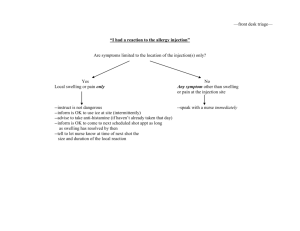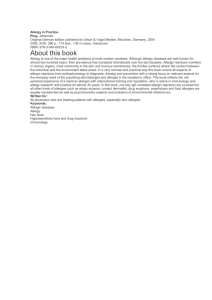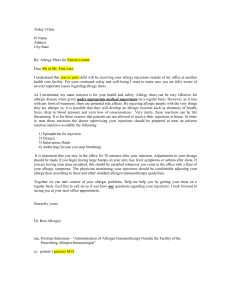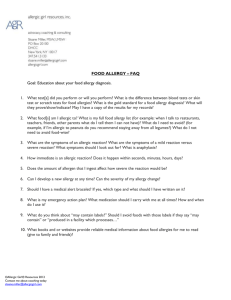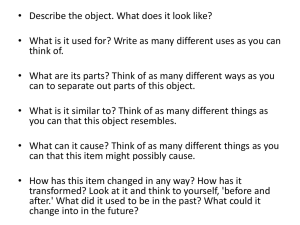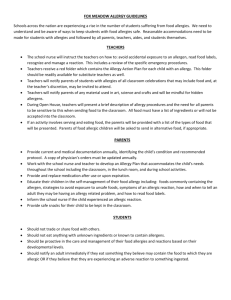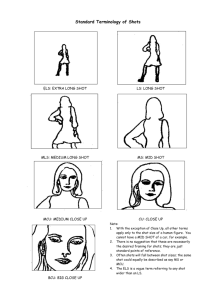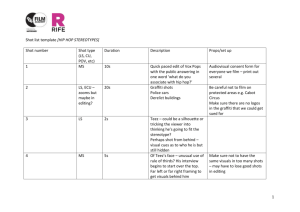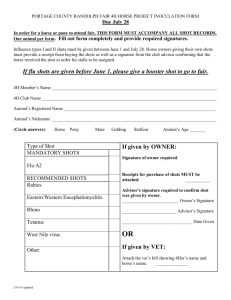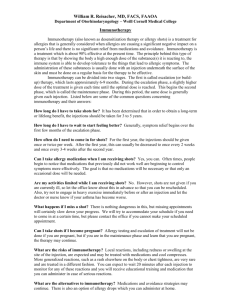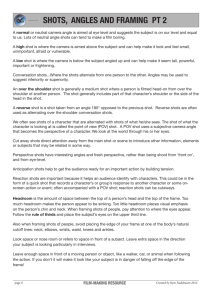ALLERGY VACCINES
advertisement
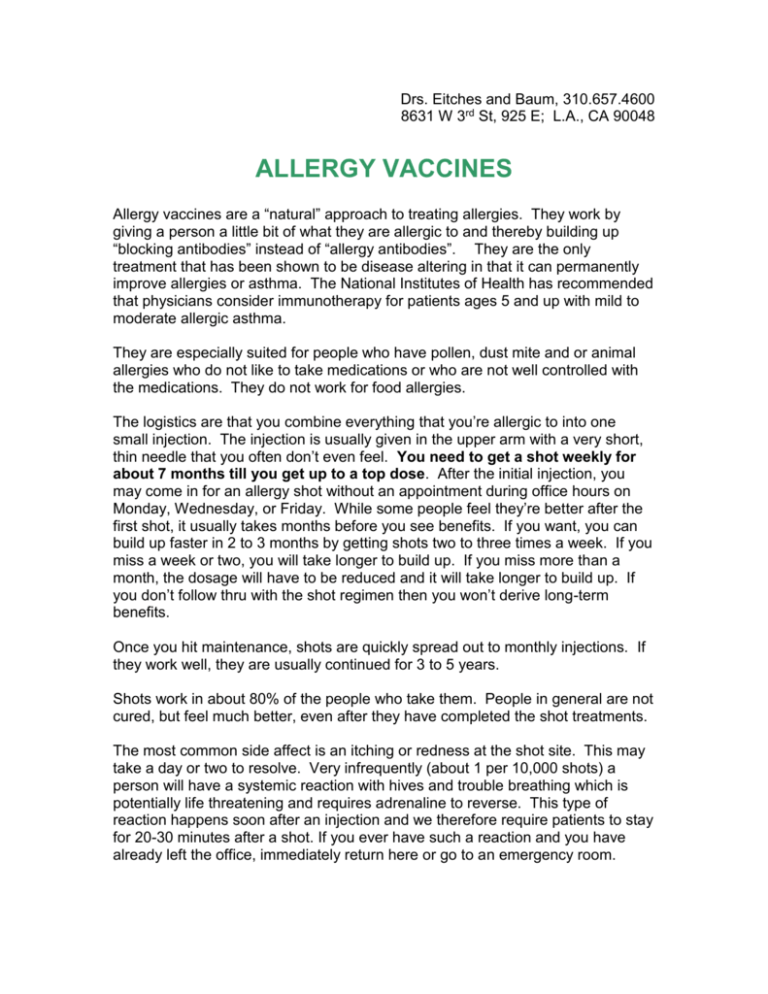
Drs. Eitches and Baum, 310.657.4600 8631 W 3rd St, 925 E; L.A., CA 90048 ALLERGY VACCINES Allergy vaccines are a “natural” approach to treating allergies. They work by giving a person a little bit of what they are allergic to and thereby building up “blocking antibodies” instead of “allergy antibodies”. They are the only treatment that has been shown to be disease altering in that it can permanently improve allergies or asthma. The National Institutes of Health has recommended that physicians consider immunotherapy for patients ages 5 and up with mild to moderate allergic asthma. They are especially suited for people who have pollen, dust mite and or animal allergies who do not like to take medications or who are not well controlled with the medications. They do not work for food allergies. The logistics are that you combine everything that you’re allergic to into one small injection. The injection is usually given in the upper arm with a very short, thin needle that you often don’t even feel. You need to get a shot weekly for about 7 months till you get up to a top dose. After the initial injection, you may come in for an allergy shot without an appointment during office hours on Monday, Wednesday, or Friday. While some people feel they’re better after the first shot, it usually takes months before you see benefits. If you want, you can build up faster in 2 to 3 months by getting shots two to three times a week. If you miss a week or two, you will take longer to build up. If you miss more than a month, the dosage will have to be reduced and it will take longer to build up. If you don’t follow thru with the shot regimen then you won’t derive long-term benefits. Once you hit maintenance, shots are quickly spread out to monthly injections. If they work well, they are usually continued for 3 to 5 years. Shots work in about 80% of the people who take them. People in general are not cured, but feel much better, even after they have completed the shot treatments. The most common side affect is an itching or redness at the shot site. This may take a day or two to resolve. Very infrequently (about 1 per 10,000 shots) a person will have a systemic reaction with hives and trouble breathing which is potentially life threatening and requires adrenaline to reverse. This type of reaction happens soon after an injection and we therefore require patients to stay for 20-30 minutes after a shot. If you ever have such a reaction and you have already left the office, immediately return here or go to an emergency room.
